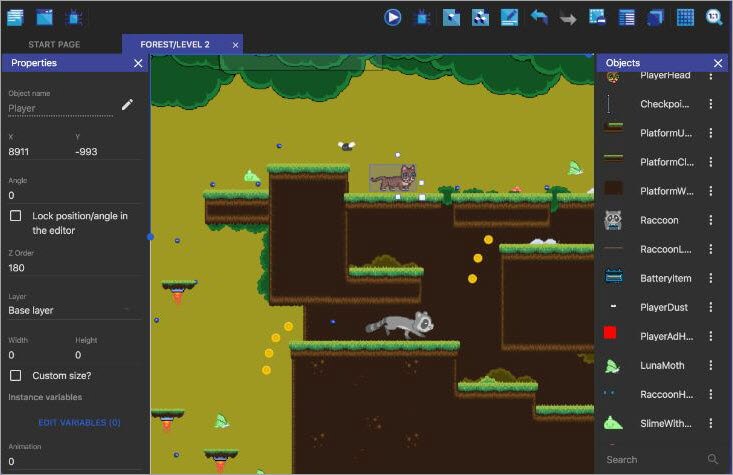
Game Software Development Kits: A Complete Overview
Related Articles
- Console Gaming Finance Options: How To Get The Best Deal
- Top Mobile Game Ad Networks For Maximum Revenue: A Guide To Navigating The Ad Landscape
- How to Play the Game Real Flight Simulator
- How to Play the Game Ultimate Football: A Comprehensive Guide for Players
- How to Play the Game Bullet Fire
Introduction
In this article, we dive into Game Software Development Kits: A Complete Overview, giving you a full overview of what’s to come
Game Software Development Kits: A Complete Overview

The world of game development is a vibrant and ever-evolving landscape, fueled by the insatiable appetite for immersive and engaging experiences. At the heart of this creation process lies a crucial tool: the game software development kit (SDK).
An SDK is a collection of software tools, libraries, documentation, and sample code that empowers developers to create games for specific platforms. It acts as a bridge between the creative vision and the technical realities of game development, providing the building blocks for crafting interactive worlds.
This comprehensive overview delves into the intricacies of game software development kits, exploring their components, functionalities, and the diverse landscape they inhabit. We’ll unravel the complexities of choosing the right SDK, analyze the benefits and challenges associated with their use, and examine the future trends shaping this essential aspect of game development.
The Anatomy of a Game Software Development Kit
Imagine an SDK as a toolbox brimming with specialized tools, each designed to tackle a specific aspect of game creation. This toolbox typically contains the following components:
- Programming Language: This forms the backbone of the SDK, defining the syntax and rules for writing game logic, controlling game objects, and managing gameplay. Popular choices include C++, C#, Java, Lua, and Python, each with its strengths and weaknesses.
- Game Engine: The heart of the SDK, the game engine provides a framework for building the core functionalities of a game, including rendering graphics, managing physics, handling input, and orchestrating sound. Leading engines include Unity, Unreal Engine, Godot, and CryEngine, each offering distinct features and target platforms.
- Graphics API: This component enables developers to interact with the graphics hardware, allowing them to render 2D and 3D graphics, manage textures, and implement visual effects. Popular APIs include OpenGL, DirectX, and Vulkan, each catering to specific hardware and platforms.
- Physics Engine: This component simulates real-world physics, enabling realistic interactions between game objects. Popular engines include Havok, PhysX, and Bullet, each offering different levels of accuracy and computational demands.
- Audio Engine: Responsible for managing sound effects, background music, and voiceovers, this component enhances the immersive experience of the game. Popular engines include FMOD Studio, Wwise, and OpenAL.
- Input System: This component handles player input, allowing developers to map actions to keyboard keys, mouse movements, gamepads, and other input devices.
- Debugging Tools: These tools help developers identify and fix errors in their code, ensuring a smooth and bug-free gameplay experience.
- Documentation and Tutorials: Extensive documentation and tutorials are essential for learning the intricacies of the SDK and effectively utilizing its functionalities.

Navigating the Landscape: Choosing the Right SDK
Selecting the right SDK is a crucial decision for any game developer. The ideal choice depends on several factors:
- Target Platforms: Different SDKs support different platforms, ranging from desktop PCs to mobile devices, consoles, and web browsers. Choose an SDK compatible with your intended platforms.
- Game Genre: The genre of your game can influence your SDK choice. For example, a 2D platformer might be better suited for a lightweight engine like Godot, while a complex open-world RPG might require the power of Unreal Engine.
- Programming Language Familiarity: If you’re comfortable with a specific programming language, choose an SDK that utilizes it.
- Budget and Resources: Some SDKs are free and open-source, while others require licensing fees. Consider your budget and the resources available for development.
- Community Support: A strong community can provide valuable resources, support, and guidance throughout the development process.
The Pros and Cons of Game Software Development Kits
While SDKs offer a powerful toolkit for game creation, they also come with their own set of advantages and disadvantages.
Advantages:
- Streamlined Development: SDKs provide a pre-built framework, reducing the need to write code from scratch for fundamental functionalities, saving time and effort.
- Increased Efficiency: SDKs offer pre-optimized libraries and tools, leading to faster development and improved performance.
- Reduced Costs: Free and open-source SDKs can significantly reduce development costs.
- Access to Cutting-Edge Technology: SDKs often incorporate the latest advancements in game development, offering access to powerful features and tools.
- Community Support: Large communities surrounding popular SDKs provide a wealth of resources, tutorials, and support for developers.
Disadvantages:
- Learning Curve: Mastering a new SDK can be time-consuming, requiring investment in learning the tools, libraries, and documentation.
- Limited Flexibility: While SDKs provide a framework, they can sometimes limit creative freedom and flexibility.
- Potential for Dependence: Overreliance on a single SDK can make it difficult to switch to another platform or engine in the future.
- Performance Considerations: Certain SDKs might have performance limitations, particularly on less powerful hardware.
- Licensing Costs: Commercial SDKs can incur significant licensing fees, adding to development costs.
The Future of Game Software Development Kits
The landscape of game development is continuously evolving, and SDKs are at the forefront of this transformation. Here are some key trends shaping the future of game software development kits:
- Cloud-Based Development: Cloud-based SDKs are gaining traction, offering developers the flexibility to access powerful tools and resources without the need for expensive hardware.
- Artificial Intelligence (AI) Integration: AI is revolutionizing game development, with SDKs incorporating AI features for procedural generation, character behavior, and intelligent gameplay.
- Cross-Platform Compatibility: SDKs are increasingly focusing on cross-platform compatibility, allowing developers to target multiple platforms with a single codebase.
- Focus on Accessibility: SDKs are incorporating features and tools to make game development more accessible to a wider range of developers, including those with limited programming experience.
- Open-Source Movement: The open-source movement is gaining momentum in game development, with more SDKs becoming available under open-source licenses, fostering collaboration and innovation.
Conclusion
Game software development kits are indispensable tools for creating immersive and engaging gaming experiences. By providing a comprehensive toolkit for game development, SDKs empower developers to bring their creative visions to life, pushing the boundaries of interactive entertainment. As the gaming landscape continues to evolve, SDKs will play an increasingly pivotal role in shaping the future of game development, offering developers the tools they need to create the next generation of innovative and engaging experiences.
Source:
Closure
We hope this article has helped you understand everything about Game Software Development Kits: A Complete Overview. Stay tuned for more updates!
Don’t forget to check back for the latest news and updates on Game Software Development Kits: A Complete Overview!
We’d love to hear your thoughts about Game Software Development Kits: A Complete Overview—leave your comments below!
Keep visiting our website for the latest trends and reviews.


